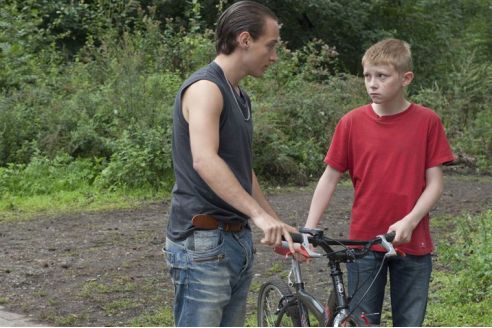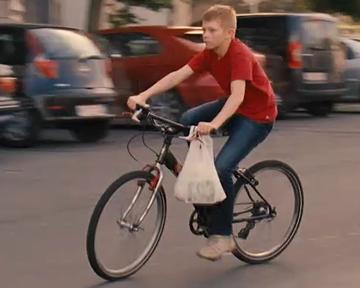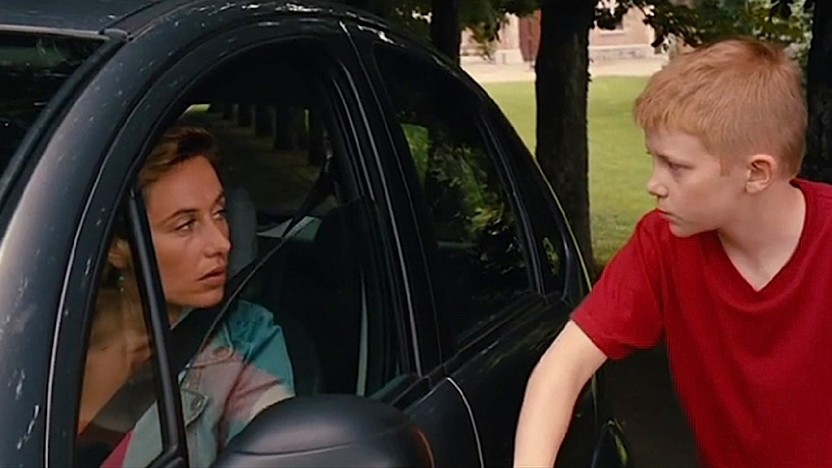Le gamin au vélo/The Kid with a Bike
I’ve recently been thinking that a considerable portion of what I find the most detestable in contemporary commercial filmmaking can be summed up in a single trend: exploitation movies that go out into the world as “serious” art movies,. Admittedly, two very early examples of this trend in talkies, Lang’s M and Hawks’ Scarface, are two of the greatest movies ever made, though neither of these can be accused of stroking and glorifying the audience’s hypocrisy. But ever since the Godfather pictures, it seems, artiness has been working overtime as a kind of built-in alibi for many of the baser impulses in the audience –- various kinds of cynicism viewing corruption as inescapable, everyday, and deeply profound (e.g., Avatar, The Girlfriend Experience, Contagion), extreme violence as a function of specious and hypocritical morality (or, even worse, “sensitivity,” as in Drive — or, for that matter, The Passion of the Christ), gimmicky temporal structures (e.g., Tarantino, Memento, Babel) or fatuous psychologizing that are somehow supposed to dignify various forms of boorishness or nastiness (ranging from McQueen’s sexist complacencies and brutalities in Shame to von Trier’s dubious and ongoing validation of his own depression as a practical tool for coping with glitzy catastrophes and atrocities of his own making), and even the sort of Oscar-mongering that can cast a liberal activist (Woody Harrelson) as a racist thug (Rampart) to show us how “complex” the modern world is supposed to be.
The Kid with a Bike has its own version of the complexity of the modern world, but its grasp of simple narrative exposition is so masterful that it doesn’t pause long enough during its spare 87 minutes to underline or boast about it. Although it eventually evolves into a crime thriller of sorts, and one with violence that is every bit as shocking in its own way as what one finds in Drive, its art-movie trappings are fairly minimal. Apart from an unnecessary and lamentable belt-and-suspenders strategy to inject brief orchestral passages from Beethoven’s fifth piano concerto at periodic intervals to foster a sense of gravity that is already fully apparent, the Dardenne brothers’ parable about an 11-year-old boy learning how to cope with being abandoned by his only parent is utterly free of sentimentality, complacency, or rhetoric. It doesn’t even bother to make its young hero especially likable. But as storytelling that is both streamlined and nuanced, I think it deserves to stand alongside Lang and Hawks rather than next to any of the arthouse blowhards cited above. This is the only film I’ve attended so far at the Chicago International Film Festival, and it’s one of the best movies I’ve seen all year –- and quite possibly the best thing by the Dardennes since Rosetta.[10/10/11]




